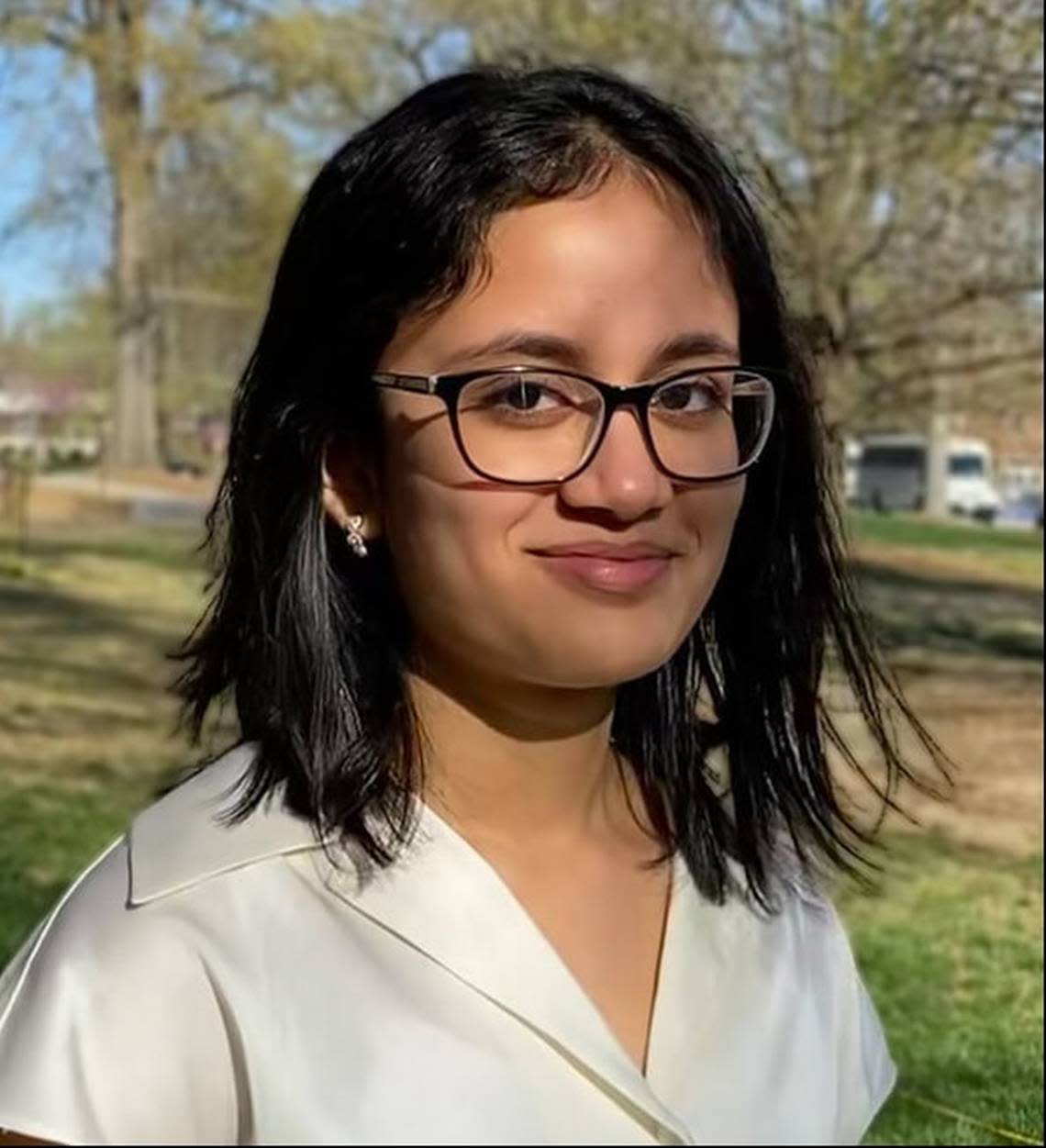Charlotte native fights ‘detrimental stereotypes’ in AI here and abroad — at only 16
You’ll crush Archita Khaire if your technology role model is Steve Jobs or Bill Gates.
Khaire says those responses, which she always hears from her peers, prove why her mission since 2020 is so important: pushing for more diversity in the field of artificial intelligence.
“(It’s) so critical,” said Khaire, a former student at Providence High School in Charlotte who now attends the North Carolina School of Science and Mathematics in Durham. “Only 22% of artificial intelligence professionals globally are female. If students don’t see role models like them, it’s scary to enter the field.”
Making artificial intelligence, or AI, less daunting for teens means providing them with opportunities. So Khaire, a 16-year-old who’s lived in Charlotte most of her life, founded AIBytes4You, a nonprofit dedicated to attracting minorities and underrepresented students to the field.
A team of teens run the nonprofit with a youth-centered curriculum. They began conducting workshops virtually by collaborating with public schools and libraries early during the pandemic. Now, about 25 youth from Charlotte, other states and countries such as India and Zambia run virtual and in-person workshops.
“Sometimes it is just the fear of the unknown or detrimental stereotypes that hold students back,” Khaire said. “We provide students the opportunity to explore AI as early as elementary school. Our curriculum not only covers introductory and advanced and coding concepts, but also focuses on less-mentioned topics like ethics and bias in AI.”
AI is any technology that attempts to simulate human intelligence with programming to mimic thoughts and actions of humans. Machine learning is a subset of AI technology that can learn from patterns in data to make decisions on its own.
“We cherish every new student who develops an interest in the field, whose career path begins to shift towards technology,” she said. “Students will often contact us after our elementary ‘Intro to AI’ sessions, asking the question: “How can I continue learning about AI?” That is how we define success.”
OUR INVESTIGATION: Past federal review found problems in CMS after sexual assault reports
Making the introduction
Khaire has always been interested in STEM subjects. In middle school, she was part of Horizons, a gifted program in Charlotte-Mecklenburg Schools. Her class had nine boys and two girls.
As she grew older, she noticed a gender gap in engineering-related clubs and coding classes. When she developed an interest in AI, it was difficult for Khaire to find the right resources to expand her knowledge and work on hands-on projects.
“I noticed that there were also many other students who faced the same struggle; they were interested in learning but didn’t know where to start and how to continue,” she said. “Part of the reason for this is that public high schools have not yet introduced AI into their curriculum.”
In August 2020, she decided it was her job to provide the introduction through AIBytes4You.

“We frequently update our website with future workshops and activities,” Khaire said. “We also collaborate with libraries and schools that help us spread the word. For those who cannot make it to our workshops, we post ‘AI Bytes’ regularly on Instagram, have our curriculum available for free to download, and provide other free resources for students to explore.”
To date, Khaire’s team counts 1,500 students as being helped by its programming, which means attending remote and in-person workshops in the U.S. and abroad.
Dangerous biases
Khaire says AI technology will contain “dangerous biases” if more women and people of color don’t take an interest in AI and enter the field.
During the pandemic, she built a Twitter-based alert system to detect COVID outbreaks using natural language processing techniques. Later on, she started working on research projects, applying what she learned to solve real-world problems.
She contacted professors whose work she was drawn to and also developed an interest in Alzheimer’s disease. That new interest led to novel work building AI tools to uncover genes that cause Alzheimer’s.
“When working on these projects, I realized that the massive banks of gene data that I was working with primarily contained information from European males, failing to account for the diverse set of people who develop Alzheimer’s,” she said. “If data lacks diversity, its performance will be biased against a huge portion of the population.”
READ NEXT: If you can pay rent on time, isn’t that enough? Not always in Charlotte.
More exposure
Navya Tyagi, 17, attends Providence High. Tyagi creates interactive social media content and leads the design team for AIBytes4You, where the team posts snippets about artificial intelligence and machine learning.
“The nonprofit provides exposure to more tech-related fields and career paths, especially for minorities and women,” Tyagi said. “(It) doesn’t only focus on the technology though, it also incorporates other industries through discussions about how AI technologies can be used in medicine, finance, environmental science, and more.”
During an AIBytes4You workshop Khaire conducted at a school in India, she brought up the topic of role models in technology. She asked students: “Can anyone name an Indian female role model?”
“There was only silence,” Khaire said. “I hope that AIBytes4You encourages them to go on and become the representation we need in the field, creating a new generation of role models.”
She added, with a laugh: “That would be great if they named me, but I’m still learning.”
